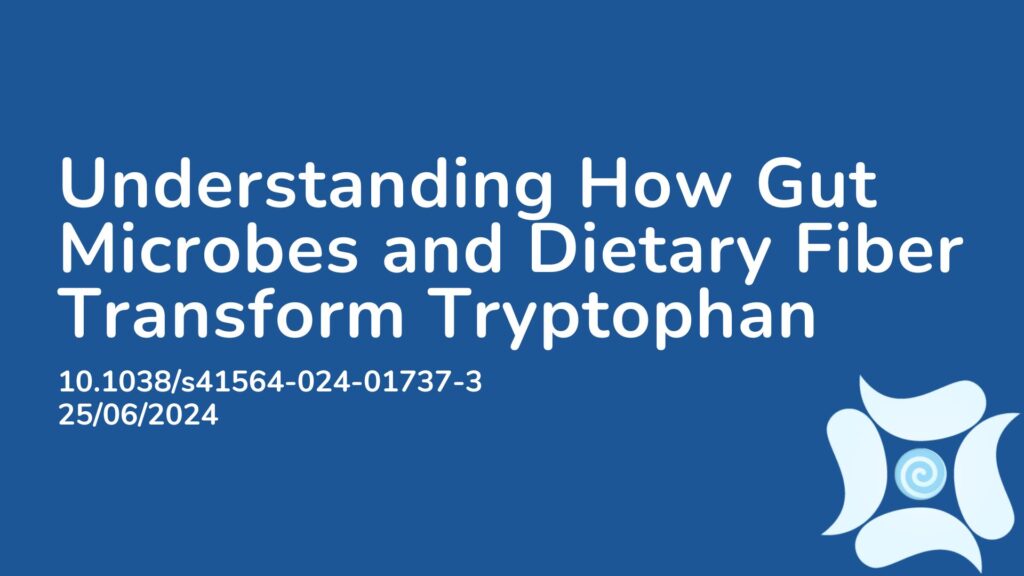Summary:
Tryptophan is an essential amino acid that breaks down in the gastrointestinal tract, producing metabolites that impact metabolism and homeostasis. Various gut microbes turn tryptophan into metabolites like indole, indolelactic acid (ILA), indoleacrylic acid (IAcrA), indolepropionic acid (IPA), indoleacetic acid (IAA), indole aldehyde (IAld), and tryptamine. These substances help regulate the gut lining, immune response, and inflammation. While some, like ILA, IAA, and IAld, are beneficial, others, such as indole, can be harmful and contribute to chronic kidney disease. This study examined how the availability of tryptophan and fermentable carbohydrates in the gut affect the production of these metabolites. The results show that the amount of tryptophan, the breakdown of fermentable carbohydrates after consuming fiber, and specific bacteria types in the gut influence tryptophan metabolite production. These findings help explain the link between dietary fiber intake and microbiome activity seen in human studies.
Abstract:
Tryptophan is catabolized by gut microorganisms resulting in a wide range of metabolites implicated in both beneficial and adverse host effects. How gut microbial tryptophan metabolism is directed towards indole, associated with chronic kidney disease, or towards protective indolelactic acid (ILA) and indolepropionic acid (IPA) is unclear. Here we used in vitro culturing and animal experiments to assess gut microbial competition for tryptophan and the resulting metabolites in a controlled three-species defined community and in complex undefined human faecal communities. The generation of specific tryptophan-derived metabolites was not predominantly determined by the abundance of tryptophan-metabolizing bacteria, but rather by substrate-dependent regulation of specific metabolic pathways. Indole-producing Escherichia coli and ILA- and IPA-producing Clostridium sporogenes competed for tryptophan within the three-species community in vitro and in vivo. Importantly, fibre-degrading Bacteroides thetaiotaomicron affected this competition by cross-feeding monosaccharides to E. coli. This inhibited indole production through catabolite repression, thus making more tryptophan available to C. sporogenes, resulting in increased ILA and IPA production. The fibre-dependent reduction in indole was confirmed using human faecal cultures and faecal-microbiota-transplanted gnotobiotic mice. Our findings explain why consumption of fermentable fibres suppresses indole production but promotes the generation of other tryptophan metabolites associated with health benefits.
Article Publication Date: 25/06/2024
DOI: 10.1038/s41564-024-01737-3



